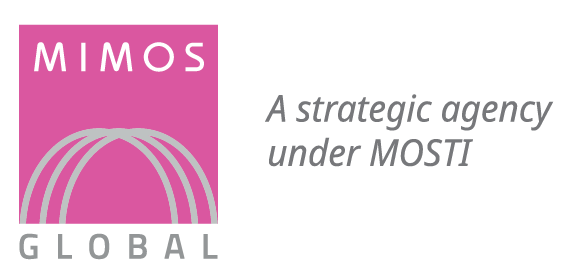Department:
Production System, Research & Development and Testing
Position Purpose & Summary:
Senior Engineer position and the role is to manage and support the storage and server infrastructure for MIMOS Berhad including CEPH Storage,Cloud System and Virtual Machines which are being utilized for Production System, Research & Development and Testing.
Primary Duties & Responsibilities:
- Overseeing CEPH Storage: Involves managing and maintaining the CEPH storage systems ensuring their optimal performance and addressing any issues that may arise.
- Installation and Configuration: Install, configure, and deploy storage systems, including SAN (Storage Area Network), NAS (Network Attached Storage), and DAS (Direct Attached Storage).
- Implement and integrate storage management software and tools, ensuring compatibility with other systems and applications.
- Continuously monitoring the storage systems to ensure optimal performance, availability, and reliability.
- Perform regular maintenance tasks such as firmware updates, patch management, and system health checks.
- Perform the tuning on the storage tuning parameters and configurations based on workload and application needs.
- Maintain the data backup and data recovery to protect data against loss and ensure business continuity.
- Provide support to end-users and projects regarding storage-related queries and problems, addressing complex issues and ensuring smooth operations.
- Participating in storage design and implementation: Participate in the design, implementation, enhancement, and ongoing support of complex business solutions.
- Responsible for maintaining MI-cloud servers in the absence of the server engineer to ensure smooth functioning
- Additional Responsibilities: Willingness to undertake any other duties as directed by the supervisor or deemed necessary by management.
Relevant Work Experience
- Storage Management: Knowledge of storage technologies such as SAN (Storage Area Network), NAS (Network Attached Storage), and experience in configuring and managing storage solutions.
- Server Administration: Proficiency in installing, configuring, and maintaining physical and virtual servers.
- Virtualization Technologies: Experience with hypervisors such as VMware vSphere, Microsoft Hyper-V, or KVM, including VM provisioning, management, and performance optimization.
- Cloud Platforms: Familiarity with cloud computing platforms like Amazon Web Services (AWS), Microsoft Azure, or Google Cloud Platform (GCP), including deployment, scaling, and management of cloud-based infrastructure.
- Networking: Understanding of networking concepts including TCP/IP, VLANs, VPNs, and routing protocols, as well as experience in configuring network interfaces and firewalls.
- Scripting and Automation: Proficiency in scripting languages like PowerShell, Bash, or Python for automation tasks, configuration management, and provisioning.
- Monitoring and Troubleshooting: Experience with monitoring tools like Nagios, Zabbix, or Prometheus, and ability to troubleshoot server and network issues effectively.
- Security Best Practices: Understanding of security principles and experience in implementing security measures such as access controls, encryption, and compliance standards.
- Backup and Disaster Recovery: Familiarity with backup solutions and disaster recovery strategies to ensure data integrity and business continuity.
- Documentation: Ability to create and maintain technical documentation including system configurations, procedures, and troubleshooting guides.
Qualifications
- Bachelor’s degree in Computer Science, Information Technology, Management Information Systems, or a related field
- Any relevant certifications or as below are advantages :
- Red Hat Certified Specialist in Ceph Storage Administration
- SUSE Certified Administrator in Enterprise Storage
Technical/ Functional Skills
- Proficiency with various storage technologies (e.g., SAN, NAS, DAS).
- Proficiency in disk management especially LVM.
- Proficiency in Linux Operating Systems (Ubuntu, CentOS)
- Knowledge of storage protocols (e.g., iSCSI, Fibre Channel, NFS, SMB)
- Knowledge of Virtualization Technologies (KVM)
- Experience with storage management software and tools
- Understanding of backup and disaster recovery solutions
- Familiarity with data security practices and compliance standards
- Strong troubleshooting and problem-solving abilities
Soft Skills:
- Time management and organizational skills to handle multiple tasks.
- Excellent communication and documentation skills.
- Work effectively with other IT professionals, such as network engineers, system administrators, and application developers.
- Initiative to suggest improvements and take proactive measures.
Soft Skills
- Excellent Communication Skills and able to develop and implement communication plans and strategies: This skill involves the ability to convey information effectively, both verbally and in writing. It includes being articulate, clear, and concise in conveying ideas, as well as the capacity to develop and execute communication plans tailored to various audiences and objectives. Has a good command of a minimum of Bahasa Malaysia and English languages; both written and spoken.
- People Management Skills: This encompasses the ability to lead, motivate, and guide individuals or teams towards achieving project goals. It involves skills such as delegation, performance management, conflict resolution, and fostering a positive work environment.
- Leadership Skills: Leadership involves inspiring and guiding others towards a common vision or goal. Effective leaders exhibit traits such as integrity, empathy, decisiveness, and the ability to empower and develop others.
- Coaching and Mentoring Skills: Coaching involves guiding individuals to improve their performance and develop their skills, while mentoring involves providing guidance and support based on one’s own experience and expertise. Both skills are essential for fostering talent and facilitating professional growth.
- Influencing Skills: Influencing skills involve the ability to persuade others to adopt a certain viewpoint, take a specific action, or support a particular initiative. This skill relies on effective communication, building rapport, and understanding others’ motivations and concerns.
- Negotiation Skills: Negotiation involves reaching mutually beneficial agreements through communication and compromise. It includes skills such as active listening, problem-solving, assertiveness, and finding common ground.
- Conflict Management Skills: Conflict management involves identifying, addressing, and resolving conflicts in a constructive manner. It includes skills such as communication, empathy, mediation, and finding win-win solutions.
- Time Management: Time management involves effectively allocating and prioritizing tasks to maximize productivity and achieve goals within set deadlines. It includes skills such as organization, planning, delegation, and the ability to minimize distractions.
- Writing and Presentation Skills: These skills involve the ability to convey information clearly and persuasively through written documents or oral presentations. It includes skills such as structuring content logically, tailoring messages to the audience, and using visual aids effectively to enhance understanding.
- Problem Solving Skills : It involves critical thinking, the ability to identify problems, brainstorm, decision-making, creativity, and information processing to implement the best solution.


